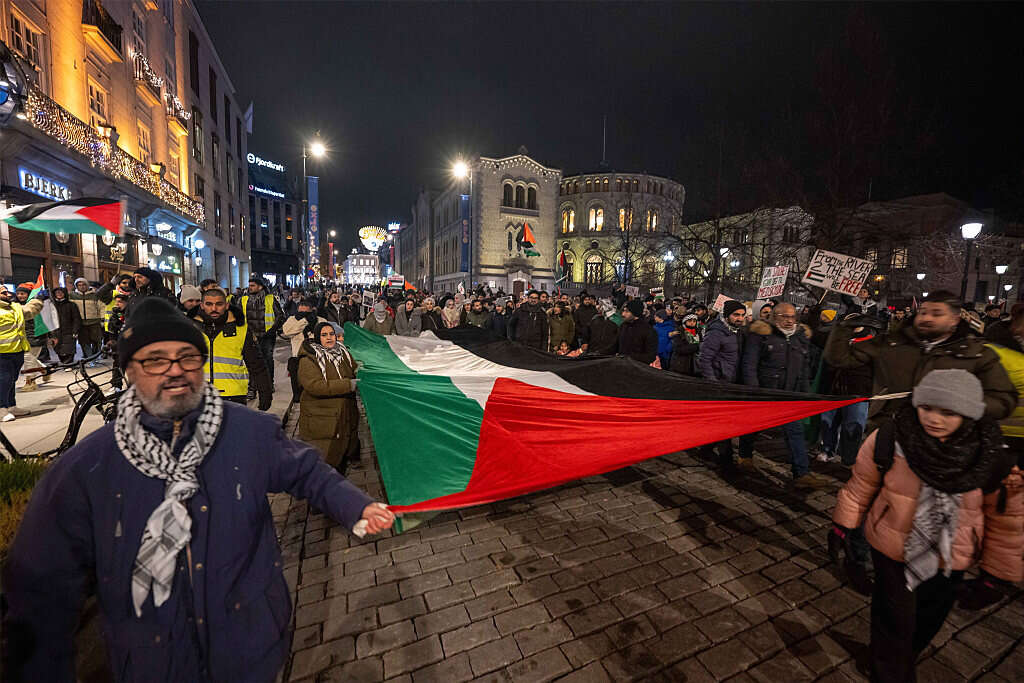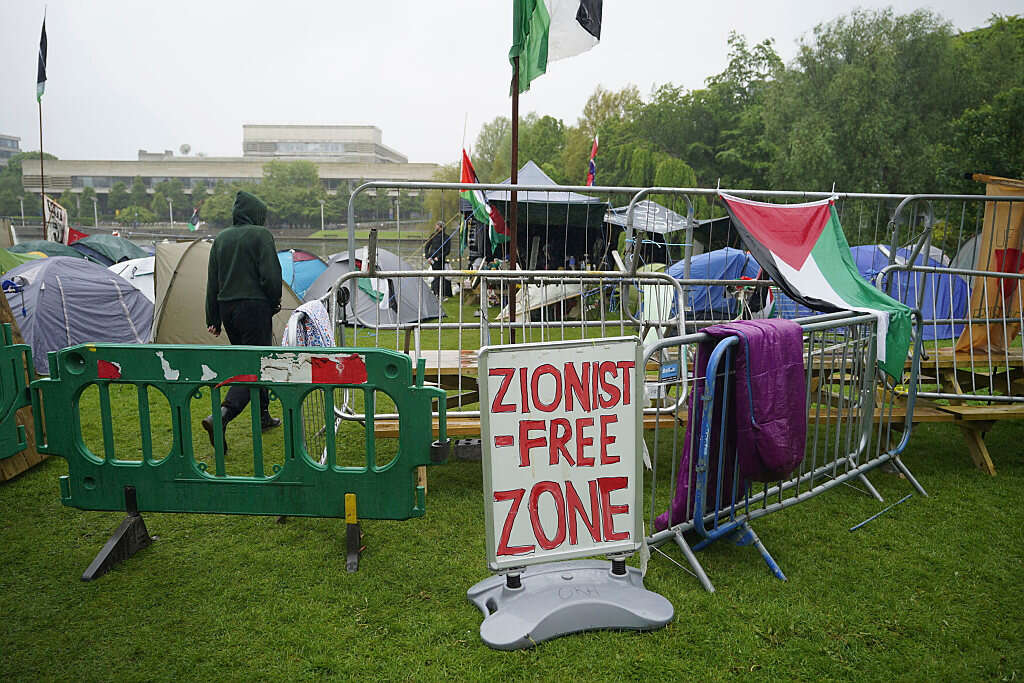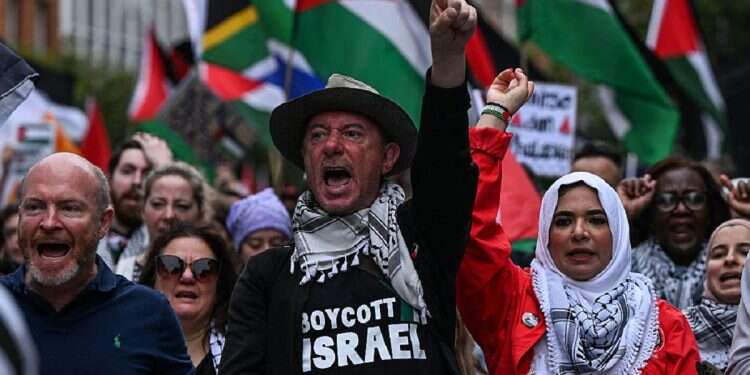The current period severely challenges how European citizens and governments relate to Israel. Most countries are calling for an immediate ceasefire in Gaza while trying to maintain some neutrality. Countries like Hungary, the Czech Republic, Austria, and Germany generally express support for Israel. There are also countries that constantly criticize Israel, like Spain, while Norway and Ireland have taken overtly hostile positions.
"What particularly disturbs me as a Jewish resident here is that Norway is the only European country where Jews were murdered during World War II, yet it refuses to designate Hamas as a terrorist organization. This possibly indicates an unresolved confrontation with its own World War II crimes" On Elpeleg, an Israeli-Norwegian resident said. "We're witnessing an antisemitic atmosphere actively fueled by the government and media coverage, manifesting in alarming political rhetoric and street-level hostility."
Media has become one-sided
"Norwegian media coverage has become overwhelmingly one-sided in its criticism of Israel, effectively silencing Jewish voices on antisemitism," Elpeleg continued. "In reports about antisemitism on Norwegian television, at best, I'm given half a sentence, while the opposing side receives full coverage. The situation reached a new low when Norway's prime minister characterized Israel's new UNRWA legislation as 'barbaric' – a statement that prompted a ruling party-affiliated newspaper editor to label Israel as a 'barbaric state devoid of culture and morality.'
"While I received an invitation to the Prime Minister's Office in Oslo this week for the unveiling of a government White Paper on combating antisemitism, I harbor serious doubts. The institutional alienation toward Jews and Judaism appears too deeply entrenched for this initiative to be more than a fig leaf."
Diplomatic tensions escalate
Foreign Minister Espen Barth Eide has emerged as the primary architect of Norway's confrontational stance toward Israel. Members of the Israeli and Jewish communities frequently attribute his hostile positions to narrow political interests and his pursuit of stronger ties with Arab state leadership.
Recent months have seen the Norwegian government launch repeated criticisms of Israeli policies, formally recognize a Palestinian state, and advocate for an arms embargo against Israel. Israel responded by revoking the credentials of Norwegian diplomatic personnel handling Palestinian Authority relations, halting PA clearance fund transfers to Oslo's custody, and withdrawing the special status Norway had maintained since the Oslo Accords.

"The climate here has become increasingly hostile for Jews and Israelis," Elpeleg reported. "During recent Kristallnacht commemorations, Jewish organizations withdrew from public ceremonies in Oslo and Bergen. Oslo held only private events, while in Bergen, fear kept people away. Last year's Palestinian demonstrations, featuring chants of 'Zionists not welcome in our streets,' left the Jewish community deeply unsettled. Palestinian groups dominated the November 9 commemorations, turning them into platforms for their cause, while Norwegian media failed to report that Jews felt too intimidated to attend." Elpeleg noted an emerging exodus of Norwegian Jews to other countries or Israel, adding that security concerns have virtually halted Zionist activities nationwide.
"Every community event now requires hidden venues and police protection. An October 7 massacre memorial in Bergen faced aggressive counter-protesters who raised 'Al-Aqsa flood' slogans and plastered the city with anti-memorial posters. The situation escalated when protesters seized and burned an Israeli flag, forcing police to end the event amid fears of losing control."
A unanimous anti-Israel stance
While Spain and Norway maintain some pro-Israel voices in politics and society, Ireland presents an almost unanimous anti-Israel stance. The Irish public largely views Israel as the antagonist in the Israeli-Palestinian conflict, with political leaders spearheading opposition campaigns. Ireland stands among the most vocal advocates pressing the European Union to reassess its trade agreements with Israel.
"Weekly anti-Israel demonstrations feature Hamas and Hezbollah flags, with calls to globalize the intifada," Lior Tibet, an Israeli student who has called Dublin home for seven years reported. "We feel it's somewhat diminishing lately because it's hard to keep a story happening so far away in the headlines for so long, but there's no doubt that because of Irish history which supports the underdog, and due to the Irish media and public's adoption of the Palestinian narrative, most people support the Palestinian side.
"Media coverage remains starkly one-sided. When presented with antisemitic incidents, outlets either ignore them entirely or construct forced 'balanced' coverage that minimizes their significance. This stems from the highest levels – President Michael Higgins dismisses antisemitism claims as Israeli embassy PR stunts."

Kippas have vanished from public view
"The president suggests that by raising antisemitism concerns, the Israeli embassy actually endangers Jews. A university student union president, who identifies as a non-Zionist Jew and supports Palestinian causes, has her voice selectively amplified more prominently than our voice. They refuse to acknowledge that we're not in the 19th century when classical antisemitic blood libels claimed Jews killed Jesus, and that today's antisemitism has evolved into ethnic, racist, and anti-Israel prejudices.
"While the hostile atmosphere rarely turns violent – Dublin isn't experiencing the tensions of Brussels, Amsterdam, or London – we recently witnessed an antisemitic assault," Tibet noted that most local Jews avoid displaying religious symbols, leading to minimal community visibility. The wearing of Stars of David or other Jewish identifiers has become increasingly rare.
"Fear has prompted many in the Jewish and Israeli community to conceal their identity. Though I wear a bracelet and dog tag honoring the Israeli hostages in Gaza, most passersby don't recognize these symbols. Kippas have vanished from public view. While the community maintains its Zionist values, it operates discreetly due to overwhelming anti-Israel sentiment. Even with some support from Ireland's Christian minority, organizing demonstrations proves challenging. Security concerns frequently lead to event cancellations or restricted access, complicated by law enforcement's apparent lack of understanding regarding necessary security measures.
"I suspect most Irish citizens aren't genuinely invested in Israeli affairs but have adopted negative views due to government positions. Being anti-Jewish has become fashionable here. Pre-October 7,2023, Ireland felt like paradise. I hope post-war, as domestic issues retake center stage, it will once again become welcoming to both Israelis and Jews."




